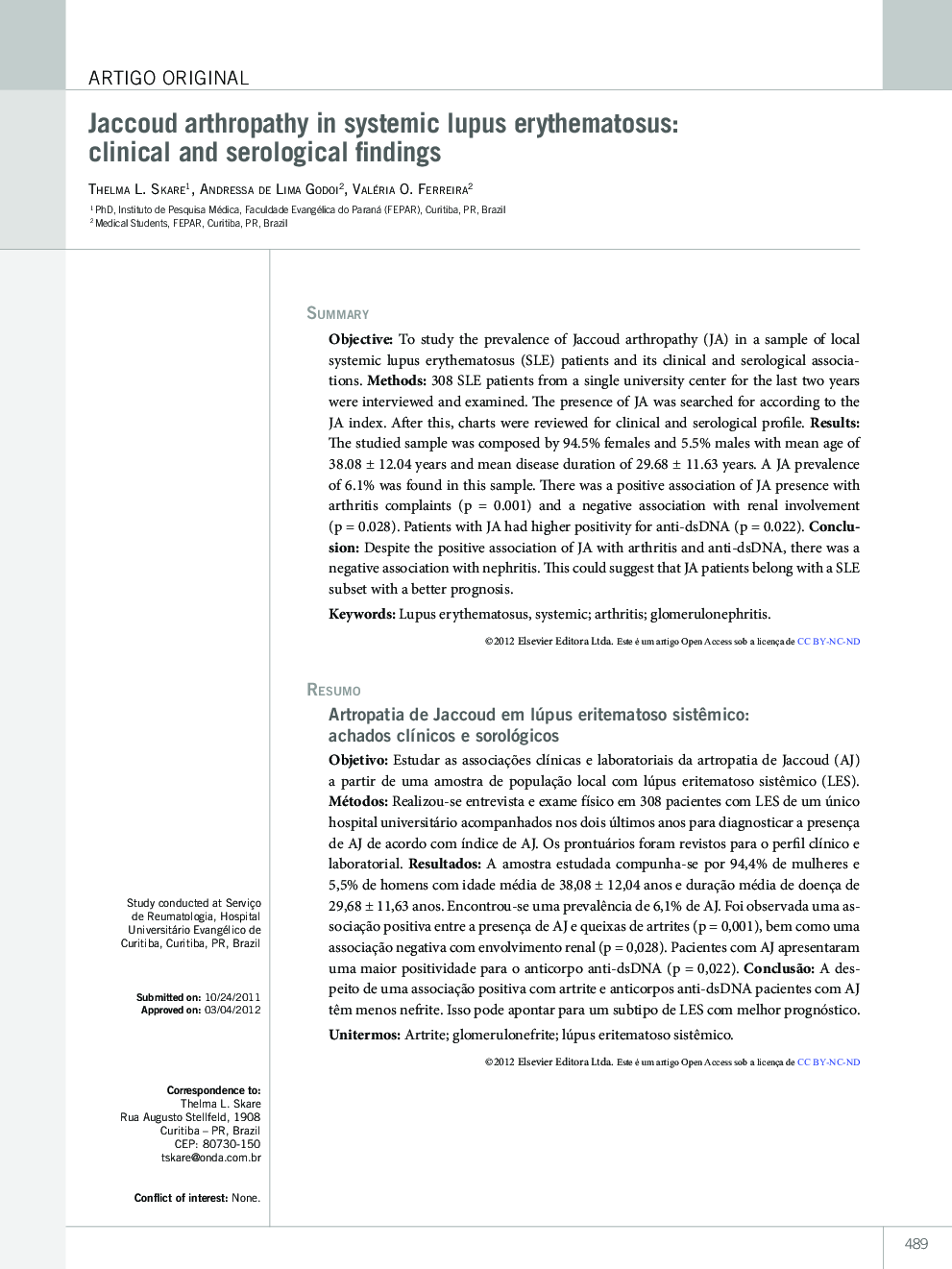| Article ID | Journal | Published Year | Pages | File Type |
|---|---|---|---|---|
| 3826374 | Revista da Associação Médica Brasileira | 2012 | 4 Pages |
SummaryObjectiveTo study the prevalence of Jaccoud arthropathy (JA) in a sample of local systemic lupus erythematosus (SLE) patients and its clinical and serological associations.Methods308 SLE patients from a single university center for the last two years were interviewed and examined. The presence of JA was searched for according to the JA index. After this, charts were reviewed for clinical and serological profileResultsThe studied sample was composed by 94.5% females and 5.5% males with mean age of 38.08 ± 12.04 years and mean disease duration of 29.68 ± 11.63 years. A JA prevalence of 6.1% was found in this sample. There was a positive association of JA presence with arthritis complaints (p = 0.001) and a negative association with renal involvement (p = 0.028). Patients with JA had higher positivity for anti-dsDNA (p = 0.022).ConclusionDespite the positive association of JA with arthritis and anti-dsDNA, there was a negative association with nephritis. This could suggest that JA patients belong with a SLE subset with a better prognosis.
ResumoObjetivoEstudar as associações clínicas e laboratoriais da artropatia de Jaccoud (AJ) a partir de uma amostra de população local com lúpus eritematoso sistêmico (LES).MétodosRealizou-se entrevista e exame físico em 308 pacientes com LES de um único hospital universitário acompanhados nos dois últimos anos para diagnosticar a presença de AJ de acordo com índice de AJ. Os prontuários foram revistos para o perfil clínico e laboratorial.ResultadosA amostra estudada compunha-se por 94,4% de mulheres e 5,5% de homens com idade média de 38,08 ± 12,04 anos e duração média de doença de 29,68 ± 11,63 anos. Encontrou-se uma prevalência de 6,1% de AJ. Foi observada uma associação positiva entre a presença de AJ e queixas de artrites (p = 0,001), bem como uma associação negativa com envolvimento renal (p = 0,028). Pacientes com AJ apresentaram uma maior positividade para o anticorpo anti-dsDNA ( = 0,022).ConclusãoA despeito de uma associação positiva com artrite e anticorpos anti-dsDNA pacientes com AJ têm menos nefrite. Isso pode apontar para um subtipo de LES com melhor prognóstico.
